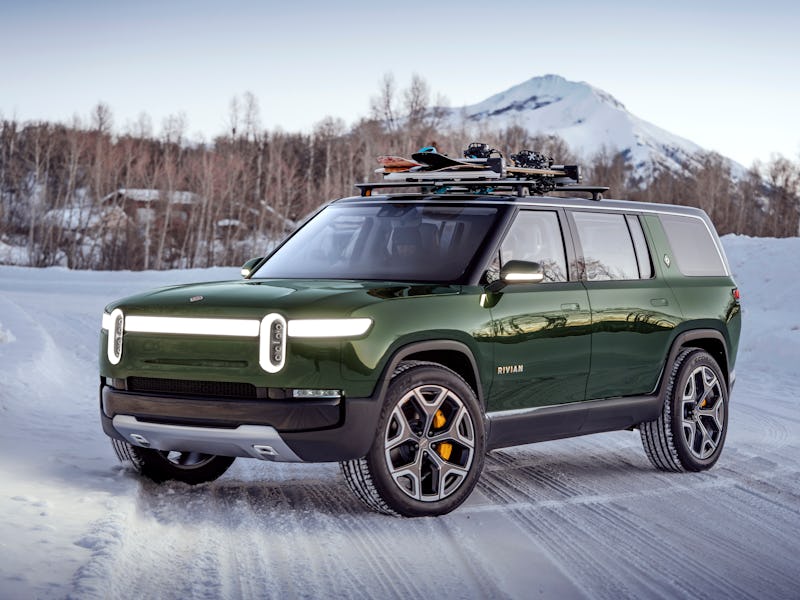Rivian: Tesla rival is making a big move away from traditional automakers
Rivian is expected to launch two vehicles aimed at outdoors explorers, boosting the appeal of electric vehicles.

Rivian, the electric car firm that's set to rival Tesla, is moving some of its jobs away from the heart of traditional cars.
An Autoline report this week claimed the firm would move most of its operations away from its Plymouth, Michigan headquarters. The state has historically served as the home of the United States' auto industry, but Rivian is now set to move jobs to Irvine, California. Of the 2,300 employed by Rivian, around 1,000 are based in California and 750 are in Michigan. The firm also owns a former Mitsubishi factory in Normal, Illinois.
In a statement to Autoblog, Rivian confirmed that it was moving some engineering teams to California. This would reduce the environmental impact on travel, and improve the company's internal operations. The firm also explained:
"We’ve recently completed an expansion at our Michigan location and it will remain an important presence for us. We are also committed to creating a vibrant and inviting manufacturing presence in Normal, Illinois, where all Rivian vehicles will be produced. As we grow, we’ll keep evaluating and evolving our footprint and geography."
The move represents a changing American auto industry, one that was once seen as a mainstay of Michigan. Slate explained in 2017 that the state became the center of the auto industry because Henry Ford lived in Detroit, and the state was close to large supplies of iron ore and timber. It was also well connected, with good rail and road routes to large population centers. While few car companies were choosing to make Detroit their home at the start of the century, by 1915 it was home to 13 of the 15 most popular brands.
Detroit still plays a major role in the American automotive industry, but other power centers have emerged. Foreign carmakers like Honda, Toyota, Kia, and Nissan have set up factories in the American South, taking advantage of a lack of unionization to set up a counterbalance to Midwestern power. And in California, Tesla has rapidly emerged as a household name in the electric car industry, based near Silicon Valley where tech firms transformed the personal computer decades prior. Tesla's Fremont factory at one point belonged to General Motors, the Detroit-headquartered firm that ranks as the United States' largest automaker.
Rivian doesn't necessarily see itself as directly taking on Tesla. In an Inverse interview in March 2019, the firm's founder and CEO RJ Scaringe explained that Elon Musk's company is not really who they're aiming for:
"Tesla’s not who we’re taking volume from. We’re taking volume from all the non-electric vehicles, and that’s where the market for electric vehicles is going to expand greatly.”
Rivian has big plans for the future. It's been stress-testing its R1T electric pickup truck in Arizona:
The vehicle is set to launch alongside the R1S SUV sometime next year, after having the launch date pushed back due to the coronavirus pandemic.
Both vehicles are designed for the outdoors. They're capable of traveling over 400 miles, with a wading depth of over three feet and a quad motor system. The R1S can tow 7,700 pounds, while the R1T can tow 11,000 pounds.
Rivian is not stopping there. It's rolling out charging points at areas like outdoor parks and off-roading pit stops. Similar to how the Tesla supercharger network helped new owners complete journeys, these will help Rivian's target audience push their trucks to the limit.
The Inverse analysis – Rivian will be moving closer to the emerging new market. The L.A. Times reported in March 2020 that California is the home of the electric vehicle industry, with 275,600 jobs in 2018, 119,200 of which were in Southern California. Transportation equipment makes up around 13 percent of the state's exports. Firms like Lucid Motors and Canoo are establishing themselves as new players in this area.
It may not be leaving Michigan entirely, but bringing Rivian's engineers closer to the emerging electric car industry could pay off in the long term.